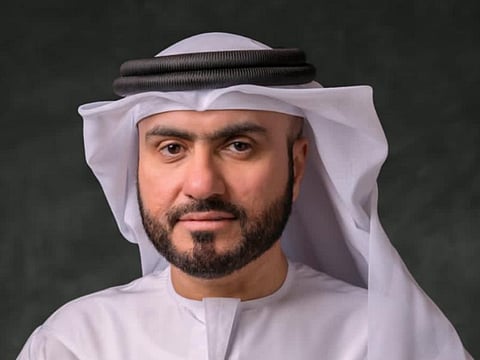Dubai’s food safety chief becomes first Arab to get PhD on how culture affects safety of food you eat
Food safety a redline and Dubai has zero tolerance on violations: Dr Sultan Ali Al Taher

Dubai: When it comes to public health, food safety is a red line that must never be crossed. That is the message from Dr Sultan Ali Al Taher, Director of Dubai Municipality’s Food Safety Department, who has made history as the first Arab to earn a PhD on the cultural dimensions of food safety, a critical topic in one of the world’s most diverse culinary cities.
At 46, Dr Al Taher’s journey is as inspiring as it is groundbreaking. Rising from the ranks of food safety inspector to director over a 25-year career with the municipality, he worked his way up with unshakable dedication, from a high school diploma and two-year vocational certificate to earning his bachelor’s and a master’s in food safety management, and now a PhD from the University of Salford, UK.
“I started with just a diploma and a passion to protect people. Today, I hold a PhD that I dedicate to my city, Dubai,” he told Gulf News.
“Food safety is not just science. It is about understanding people, their beliefs, their practices, especially in a city with more than 200 nationalities,” he explained.
That is the very reason he decided to take up the cultural impact on the safety of food as the topic for his thesis.
Balancing study and leadership
Dr Al Taher began his PhD in 2019, juggling research with his duties at the Food Safety Department. The COVID-19 pandemic added more pressure, but he powered through.
“It was part-time, but that doesn’t mean it was easy,” he recalled.
He travelled to the UK every quarter, met his supervisor, came back, and continued working with the team here. While his goal was to help his city stay safer, his superiors and leaders offered staunch support.
“I’m grateful to my leadership and the government. They supported me every step of the way. Continuing education doesn’t just grow the individual. It lifts the whole system,” he said.
His thesis, “The Impact of Food Safety on Food Establishments in the Emirate of Dubai,” is the first in the Arab world to examine how cultural diversity influences hygiene and compliance among food workers, many of whom come from vastly different backgrounds where food handling norms may differ significantly from the UAE standards.
Zero tolerance
For Dr Al Taher, food safety is about far more than regulation. It is about lives.
He recalled past incidents where restaurants used unpasteurised eggs, ignoring known risks of salmonella to save costs.
“People fell sick. It was avoidable. That’s why we enforced strict rules. Now there is no excuse. In Dubai, we have zero tolerance for violations that put people at risk. Human life is the red line. There are no compromises when it comes to public health.”
With Dubai receiving about nine million tonnes of food annually, housing over 26,000 food establishments, and being home to more than 200 nationalities, the scale, and the stakes, are enormous.
“Dubai’s reputation as a world-class tourism and business hub depends on trust. And trust begins with safety, especially of what we eat,” he pointed out.
Cultural lens in inspections
One of the important takeaways from his research is a proposal to integrate cultural awareness into Dubai’s food inspection framework.
“Culture is not just about cuisine. It’s about habits, hygiene, beliefs,” said Dr Al Taher. “Many violations happen not because of ignorance or malice, but because what’s acceptable in one country may not be safe here. We need to close that gap with understanding.”
To do that, Dr Al Taher is pushing to update the municipality’s food inspection checklist to include food safety culture, a term that refers to shared values, beliefs, and practices around food safety in the workplace. More importantly, he is advocating for involving inspectors and experts from the same cultural backgrounds as food handlers to help the latter improve compliance through empathy, education, and mutual understanding.
“Instead of only fines, we sit down with restaurant owners and workers. We talk and we understand. We ask, why did this happen? And how can we fix it together?”
What the research revealed
Dr Al Taher’s five-year research identified five major factors impacting food safety compliance in Dubai restaurants: financial capacity, employee awareness of food safety risks, knowledge and confidence in food safety management systems, management commitment, and support within teams.
Of these, “knowledge and confidence” in safety systems performed the weakest, pointing to the need for better training, leadership, and simplified processes.
To address this, he recommends targeted awareness campaigns for staff at all levels, incentives for safe behaviour, leadership coaching for restaurant managers, simplified documentation, use of smart technologies like apps and digital checklists and promoting a blame-free culture to encourage openness and reporting.
Sign up for the Daily Briefing
Get the latest news and updates straight to your inbox



